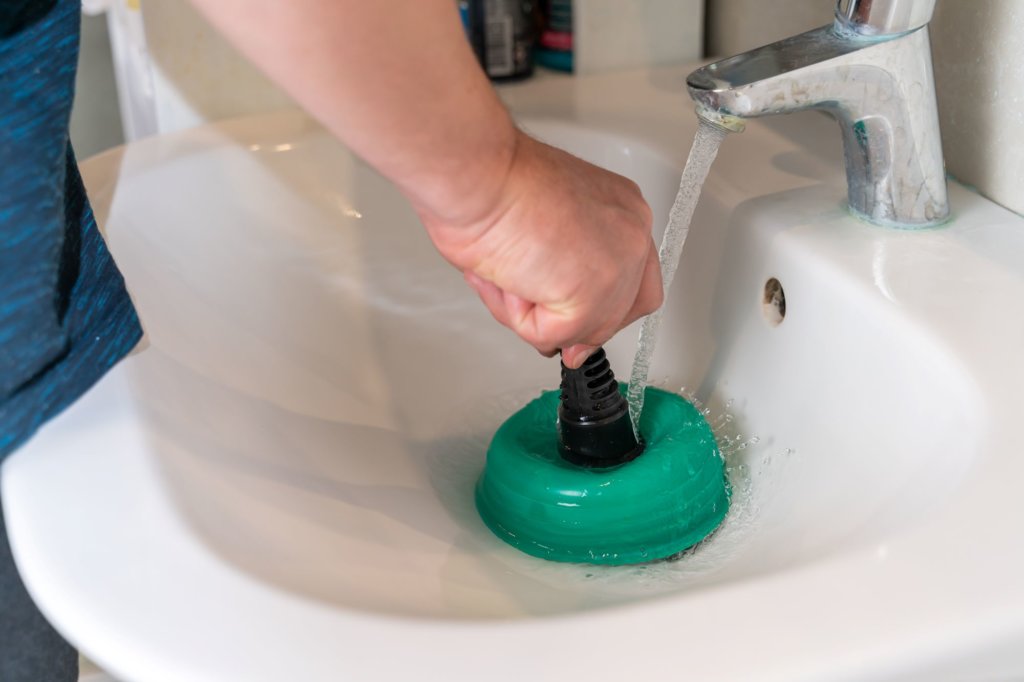Plumbing problems can strike when you least expect them, leading to costly repairs and a lot of frustration. Fortunately, many common plumbing issues can be avoided with a little bit of preventative care. Here are five of the most common plumbing problems and what you can do to prevent them.
1. Clogged Drains
Clogged drains are one of top plumbing issues in homes, and they can be caused by everything from food debris to hair and soap scum. Over time, these materials can accumulate and block the flow of water, leading to slow drainage or complete clogs.
To keep your drains clear, use drain guards to catch food particles, hair, and other debris before they enter the pipes. Absolutely never pour grease or oil down the drain, because it can solidify in the pipes and cause a blockage. Discard cooking grease or oil in the trash once it has cooled down. If your drain does become clogged, try using a drain snake or a small plunger to dislodge the blockage.

2. Leaky Faucets
A dripping faucet may seem like a minor annoyance, but over time, it can actually waste a significant amount of water (and drive up your utility bill). Many faucet leaks can be attributed to worn-out washers or seals, which are easily replaceable.
Check your faucets regularly for signs of wear and tear, and replace damaged parts as soon as possible. If you notice any drips, address the problem quickly to prevent it from worsening. If you are unable to fix the dripping faucet yourself, call a trusted local plumber.
3. Running Toilets
A running toilet is not only noisy—it can also waste gallons of water every day. This issue is typically caused by a faulty flapper valve.
Listen to make sure your toilet stops running after each flush. Inspect your toilet tank’s inner parts every few months to make sure everything is working as it should. If you hear your toilet running or cycling on and off frequently, it’s time to check for leaks or malfunctioning parts. Changing out a worn flapper or adjusting the float can often fix the problem, but don’t hesitate to reach out to a local plumbing professional.
4. Low Water Pressure
Low water pressure can affect everyday tasks like washing dishes or showering, which can become frustrating. It can be caused by a few different factors, such as clogged pipes, sediment buildup, or a malfunctioning pressure regulator.
Regularly clean your faucets and showerheads to remove any mineral deposits or build-up that can impact water flow. If low water pressure is a widespread issue throughout your home, you may need to have a plumber inspect your system for blockages or leaks.
5. Frozen Pipes
During colder months, exposed pipes are at risk of freezing, which can lead to burst pipes and significant water damage. Pipes that are particularly vulnerable include those in basements, attics, crawl spaces, or other unheated areas.
Insulate exposed pipes and make sure your home’s heating system is functioning properly. On days where the temperature is below freezing, let faucets drip slightly to keep water moving through the pipes. You’ll also want to disconnect outdoor hoses and turn off the water supply to outdoor faucets before winter weather arrives. Make sure to drain the excess water. You can further winterize outdoor faucets by adding an insulated faucet cover.
Plumbing problems can be stressful, but many issues can be prevented with regular maintenance and a few proactive steps. By taking care of your drains, checking for leaks, and preparing for colder weather, you can avoid major repairs and keep your plumbing system in good working order. If you run into consistent issues, consult a trusted local plumber to guarantee that your home’s plumbing stays in tip-top shape.
